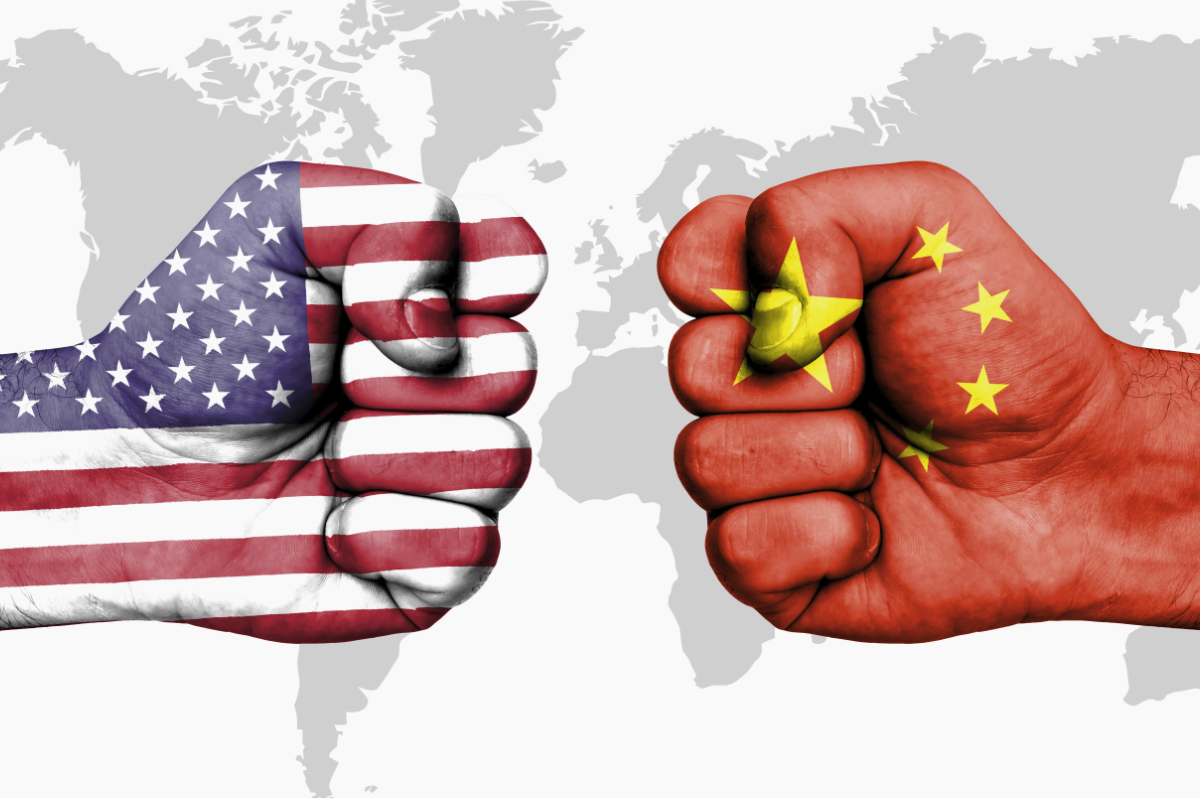US-China Tensions
US-China tensions have been building up for several years, with both countries accusing each other of engaging in unfair practices and violating each other's sovereignty. US-China tensions refer to the ongoing geopolitical, economic, and military tensions between the United States of America and the People's Republic of China. These tensions have been building up over a number of years and have been fueled by a range of issues, including trade disputes, intellectual property theft, human rights concerns, and geopolitical competition.
Trade tensions between the US and China
In 2018, the US imposed tariffs on Chinese goods, citing these concerns. China responded with retaliatory tariffs on US goods, and the trade war between the two countries escalated, with both sides imposing additional tariffs on each other's goods. The trade war had significant impacts on the global economy, with many countries feeling the effects of the disruption to international trade. The International Monetary Fund (IMF) estimated that the trade tensions between the US and China could reduce global economic growth by 0.8% in 2020, and by 0.5% in 2021.
The US and China have since reached a partial trade deal, with China agreeing to increase its purchases of US goods and the US reducing some of the tariffs on Chinese goods. However, the underlying tensions remain, with the US continuing to accuse China of unfair trade practices, including currency manipulation and subsidies to state-owned enterprises.
The ongoing trade tensions between the US and China have significant implications for the global economy, as both countries are major players in international trade. The tensions have led to disruptions in global supply chains, increased costs for businesses and consumers, and uncertainty for investors. The future of US-China trade relations remains uncertain, and the resolution of these tensions will likely be a key factor in shaping the global economy in the years to come.
Human Rights Violations in Both China and US
In America, there have been concerns about police brutality and discrimination against minority groups, particularly African Americans. The Black Lives Matter movement has brought attention to issues such as police shootings of unarmed Black people, racial profiling, and mass incarceration. There have also been concerns about the treatment of asylum seekers and refugees, particularly those from Central and South America.
The relationship between China and America has been strained by these human rights concerns, with the US imposing sanctions on Chinese officials and companies over alleged abuses in Xinjiang. China has responded by accusing the US of interfering in its internal affairs and has imposed its own sanctions on US officials and companies.
The situation has been further complicated by geopolitical tensions, with the US and China engaged in a range of disputes, including trade, technology, and military posturing in the Asia-Pacific region.
Overall, the human rights situation in both China and America has been a source of concern for the international community, with allegations of abuses against minority groups and political dissidents. The relationship between the two countries has been strained by these concerns, with each side accusing the other of hypocrisy and interference. The resolution of these tensions will likely require a commitment to dialogue, mutual respect, and the protection of basic human rights.
Technology Race Between US-China
Technology is a major area of contention between the US and China, as both countries seek to maintain their leadership in this field. The US has accused China of engaging in unfair practices, such as forced technology transfer and intellectual property theft, in order to gain an advantage in advanced technologies such as artificial intelligence, 5G, and quantum computing.
The US has taken a number of steps to limit Chinese access to its technology, including imposing restrictions on Chinese companies such as Huawei and ZTE, which are seen as potential security threats due to their close ties to the Chinese government. The US has also sought to limit Chinese investment in certain technology sectors and has imposed export controls on certain sensitive technologies.
China has responded by seeking to develop its own technology capabilities, investing heavily in research and development, and promoting its own companies as global leaders in areas such as 5G and artificial intelligence. China has also sought to develop its own technology standards, which could challenge the dominance of US-led standards in areas such as telecommunications and the internet.
The competition between the US and China in the technology sector has significant implications for the global economy and for international security. The development of advanced technologies has the potential to transform industries and create new opportunities for economic growth, but it also raises concerns about issues such as privacy, security, and inequality.
The future of US-China technology relations remains uncertain, and the resolution of these tensions will likely require a commitment to dialogue, cooperation, and the protection of intellectual property rights. The development of global technology standards and regulations will also be an important factor in shaping the future of this competition.
Geopolitical tensions between the US-China
Overall, the two countries have the world's two largest economies and are major players in global trade and investment. The resolution of these tensions will require a commitment to dialogue, cooperation, and the protection of international norms and rules.US-China tensions are complex and multifaceted, with far-reaching implications for the global economy, technology, and international relations. As the two largest economies in the world, the US and China have a significant impact on each other's economic and political fortunes, and their relationship will continue to be a key factor in shaping the world order.


No comments:
Post a Comment